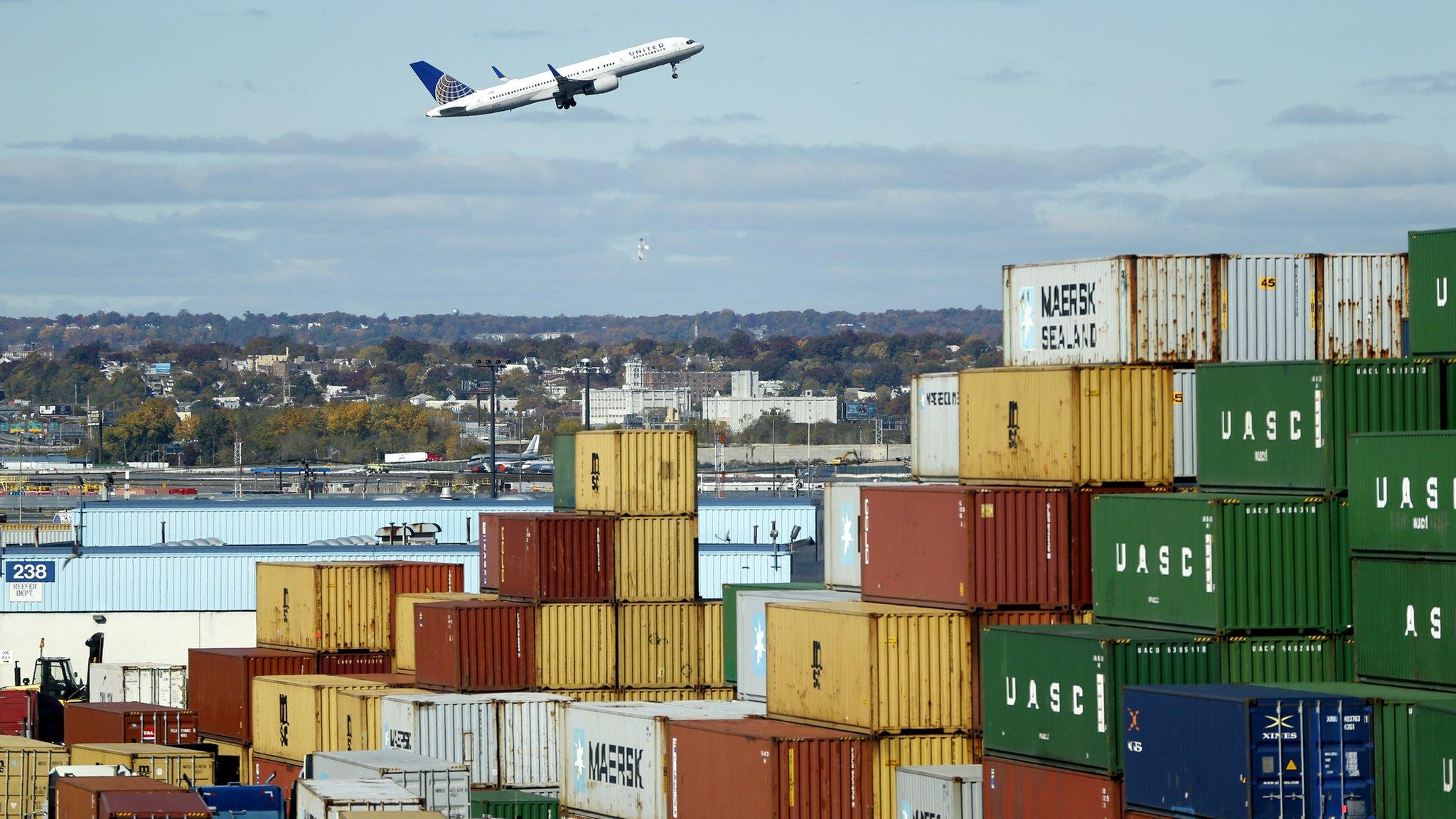TTIP: EU-US trade deal faces major challenges
- Published
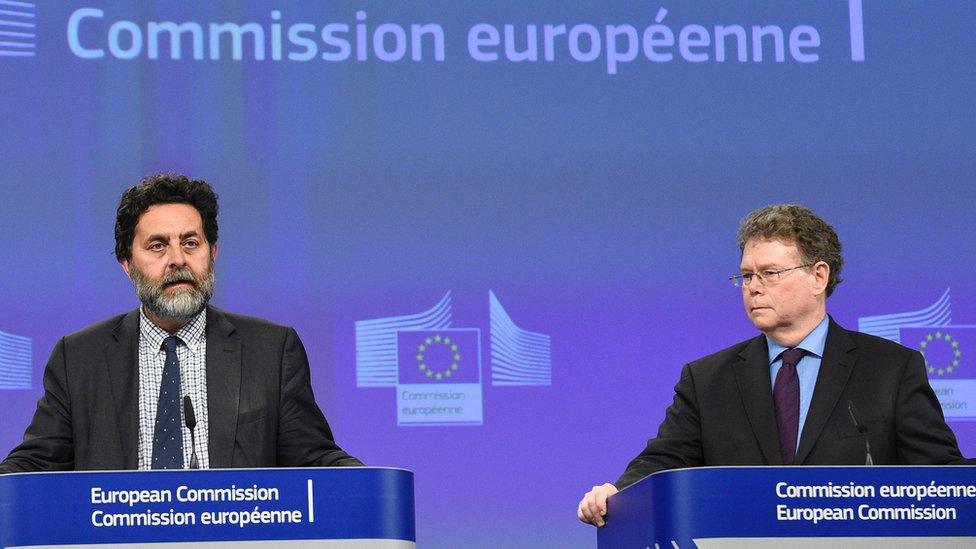
EU negotiator Ignacio Garcia Bercero and Dan Mullaney are aiming to reach a deal by the end of the year
The European Union and the United States have the outline of a trade agreement, according to a senior EU official.
Speaking after a week of intensive negotiations in Brussels he acknowledged, however, there is still a lot of work to do.
His United States counterpart said that much had been accomplished.
The negotiations, launched in 2013, have run into significant political opposition.
There are important elections coming up on both sides of the Atlantic where concerns about international trade agreements are likely to be issues.
The negotiations could also be complicated by the British referendum vote to leave the European Union.
Nonetheless both chief negotiators, Dan Mullaney for the US and Ignacio Garcia Bercero for the EU, said they are aiming to get the agreement completed by the end of the year.
Eliminate tariffs
The objective of the proposed deal, known as the Trans-Atlantic Trade and Investment Partnership or TTIP, is to remove or reduce barriers to commerce between the US and the EU.
Negotiators are working towards eliminating most tariffs (taxes applied to imports) and making it easier and cheaper for business to comply with regulation when they want to sell goods and services across the Atlantic. There are also plans for rules and protection to make international investment more attractive.
The two sides say an agreement would ultimately lead to higher incomes and employment, claims that are hotly disputed by critics.
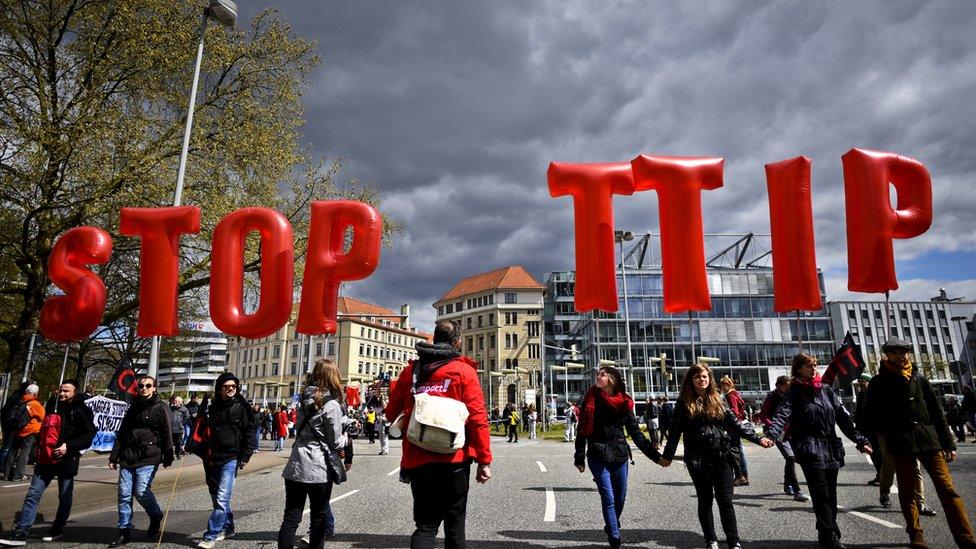
Critics say a TTIP deal could lead to job losses
There are also concerns about regulation - critics say a deal could lead to lower standards of protection for consumers, workers and the environment, and job losses.
Campaigners also object to plans for tribunals which international investors could use to challenge some actions by governments involved in the agreement.
In the UK, there has been a particular concern that TTIP might lead to the irreversible privatisation of some health services, although following the UK referendum, that issue is now probably not about TTIP but about any agreement that the British government might negotiate directly with the US.
The UK referendum result does complicate the talks. The UK is the largest US export market within the EU - and its fifth biggest in the world. How will that affect the US view on the negotiations?
UK governments tend to be among the most enthusiastic supporters of trade liberalisation agreements. But then some analysts say it might help if the UK is no longer pushing for the inclusion of financial services against US reluctance. It is not so important for other EU countries.
Reservations
There are elections in the next year that are every bit as significant for the talks. France Germany and the US all have key votes.
In the US Donald Trump's attacks on past American trade deals are well known. But trade could also be an important campaign issue in the European polls and make some political leaders less keen on TTIP. Already the French President Francois Hollande and the leader of Germany's Social Democratic Party Sigmar Gabriel have expressed reservations.
And there are still areas of the talks that the negotiators themselves are finding heavy going.
They have made progress on offers to cut or eliminate tariffs but not on all goods. They are struggling to agree on access to government contracts and on what are called geographical indications: is feta just a type of cheese or does it have to be made in Greece?
These and other unresolved issues could be settled with the political will to do it. But it is politics, especially the disquiet of many voters about the impact of trade liberalisation that could delay TTIP or conceivably eventually sink it entirely.
- Published7 June 2016
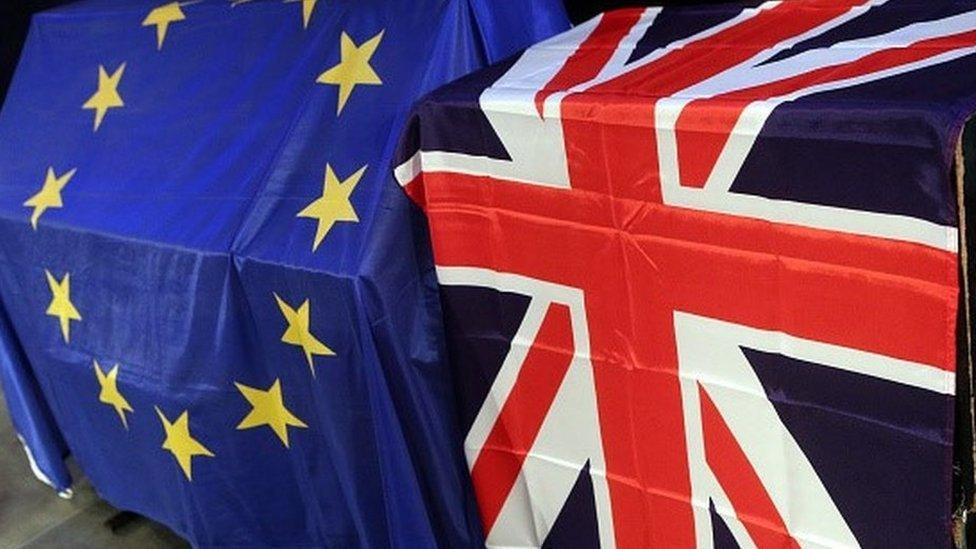
- Published3 May 2016
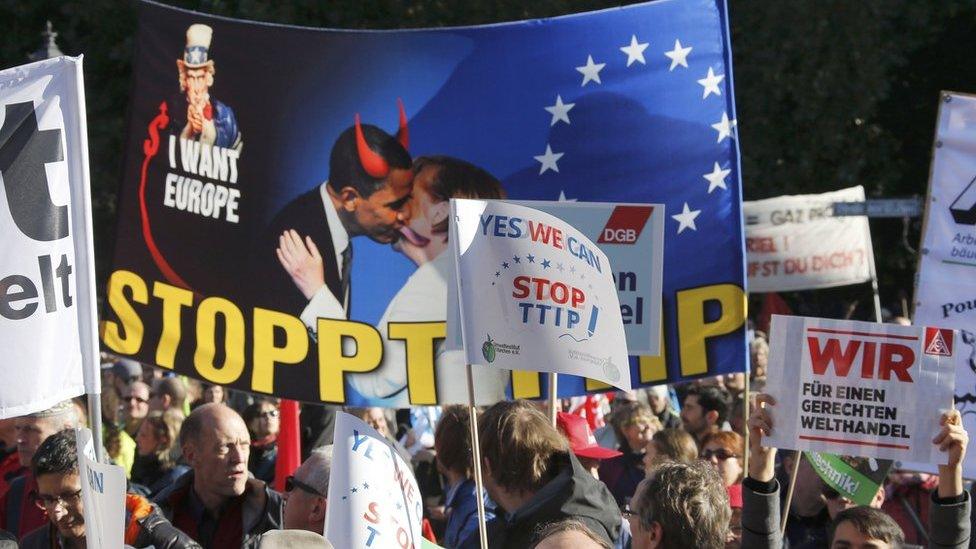
- Published2 May 2016
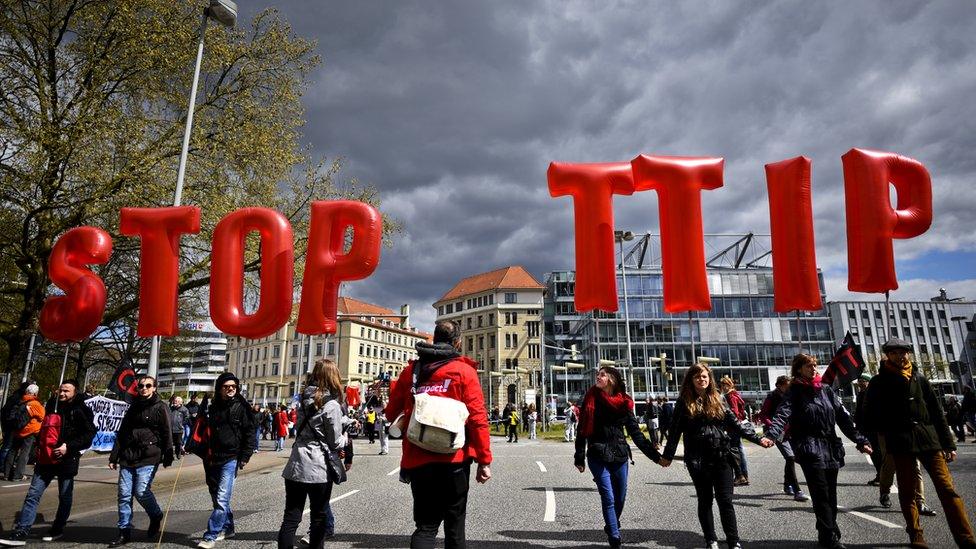
- Published23 April 2016
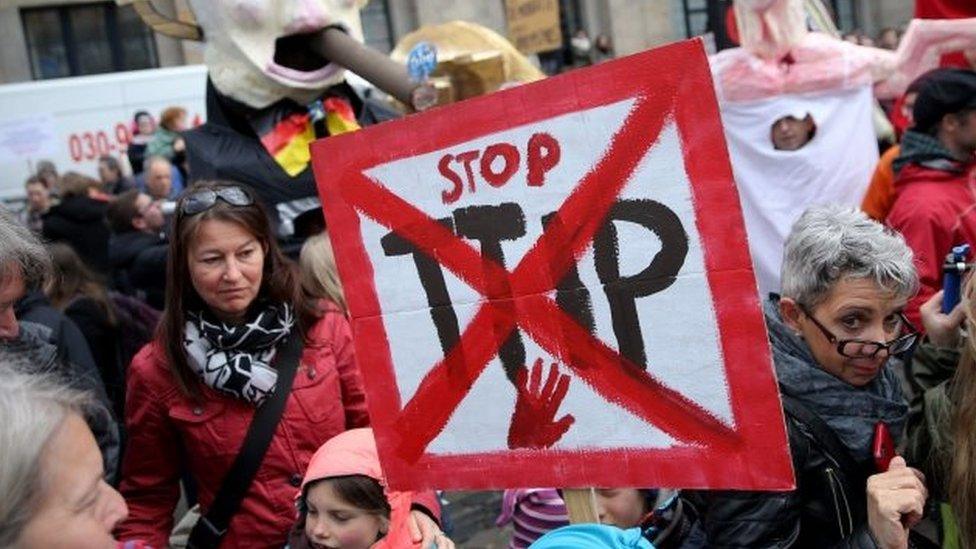
- Published5 February 2016
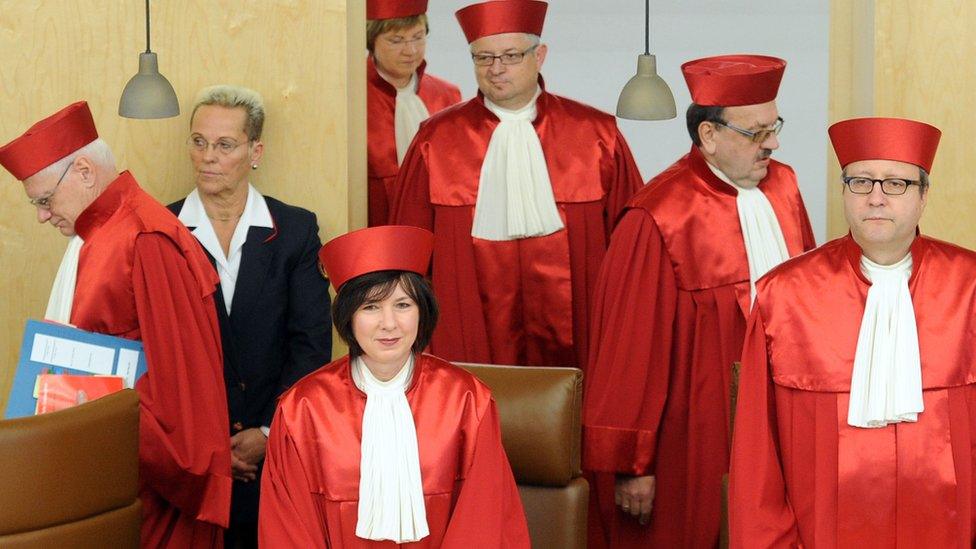
- Published4 February 2016
